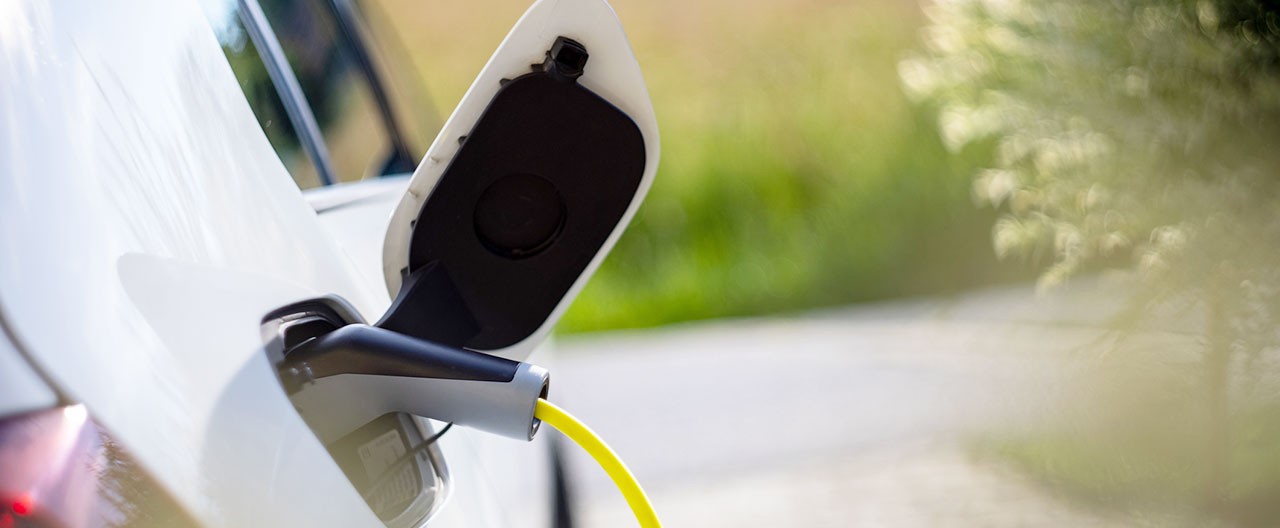With more electric vehicles (EVs) on the market than ever before, government incentives readily available, and gas prices at high levels, it’s no wonder the electric vehicle (EV) market is growing exponentially. Around 15 million EVs will be sold in 2023, and EVs will make up nearly 28% of passenger vehicle sales by 2026.1
If you’ve purchased or are thinking of buying an EV for yourself, here are a few tips to optimize your EV experience and to keep your family, car, and home safe.
Make sure to have smoke and heat detectors in your home and garage
While electric vehicles don’t have internal combustion engines, fuel tanks, or fuel lines, fires can still occur. That’s because the lithium batteries used in EVs burn hotter, require more water to extinguish, and can reignite if not properly extinguished after catching fire.
Like most cars, EVs are often parked in a garage, possibly sharing walls with living spaces or bedrooms. To minimize the risk, make sure your home and garage are adequately equipped with a centrally monitored smoke- and heat-detection system that provides early warning and notification of fire.
Never charge a car battery if it or the charger is damaged
If your EV or battery appears to be damaged in any way, has been in an accident, or was impacted by flood waters, do not park the car in the garage. Have the EV inspected by a certified electric car technician as soon as possible to prevent fire or other loss.
Have a dedicated home charging station installed and professionally verified
Installing a dedicated charging system at your home allows you to save time by charging your EV whenever the car is there, instead of needing to find charging stations en route. An EV’s battery-management system will control the charging process, continually monitoring the battery’s charge, and will stop charging once the battery reaches full capacity.
While EV manufacturers have built-in safety features to prevent overcharging, it is important to follow the manufacturer’s guidelines and use only compatible charging equipment that is certified by a nationally recognized testing laboratory such as Underwriters Laboratory. In addition, make sure an electrician checks the equipment and verifies that your at-home charger and connectors are consistent with the manufacturer’s guidelines and comply with local building codes.
Keep your EV in top condition
Take a proactive approach to your EV’s maintenance, and you’ll find that your vehicle will stay in optimal condition, and you’ll avoid many potential issues. Here are a few suggestions:
- Update the EV’s firmware, software, and applications regularly to improve your vehicle’s performance and battery management.
- Check the battery health, ensuring that it is charging to recommended levels and operating within optimal temperatures to keep the electrolytes and other liquids at correct levels.
- Flush the coolant on a regular schedule. This helps regulate the battery and motor temperature and keeps the systems operating correctly.
1University of South Carolina School of Risk & Uncertainty
This document is advisory in nature and is offered as a resource to be used together with your professional insurance advisors in maintaining a loss prevention program. It is an overview only, and is not intended as a substitute for consultation with your insurance broker, or for legal, engineering or other professional advice.
This article is provided by Chubb, A Bolder Insurance partner.
Chubb is the marketing name used to refer to subsidiaries of Chubb Limited providing insurance and related services. For a list of these subsidiaries, please visit our website at www.chubb.com. Insurance provided by ACE American Insurance Company and its U.S. based Chubb underwriting company affiliates. All products may not be available in all states. This communication contains product summaries only. Coverage is subject to the language of the policies as actually issued. Surplus lines insurance sold only through licensed surplus lines producers. Chubb, 202 Hall’s Mill Road, Whitehouse Station, NJ 08889-1600.


Recent Comments